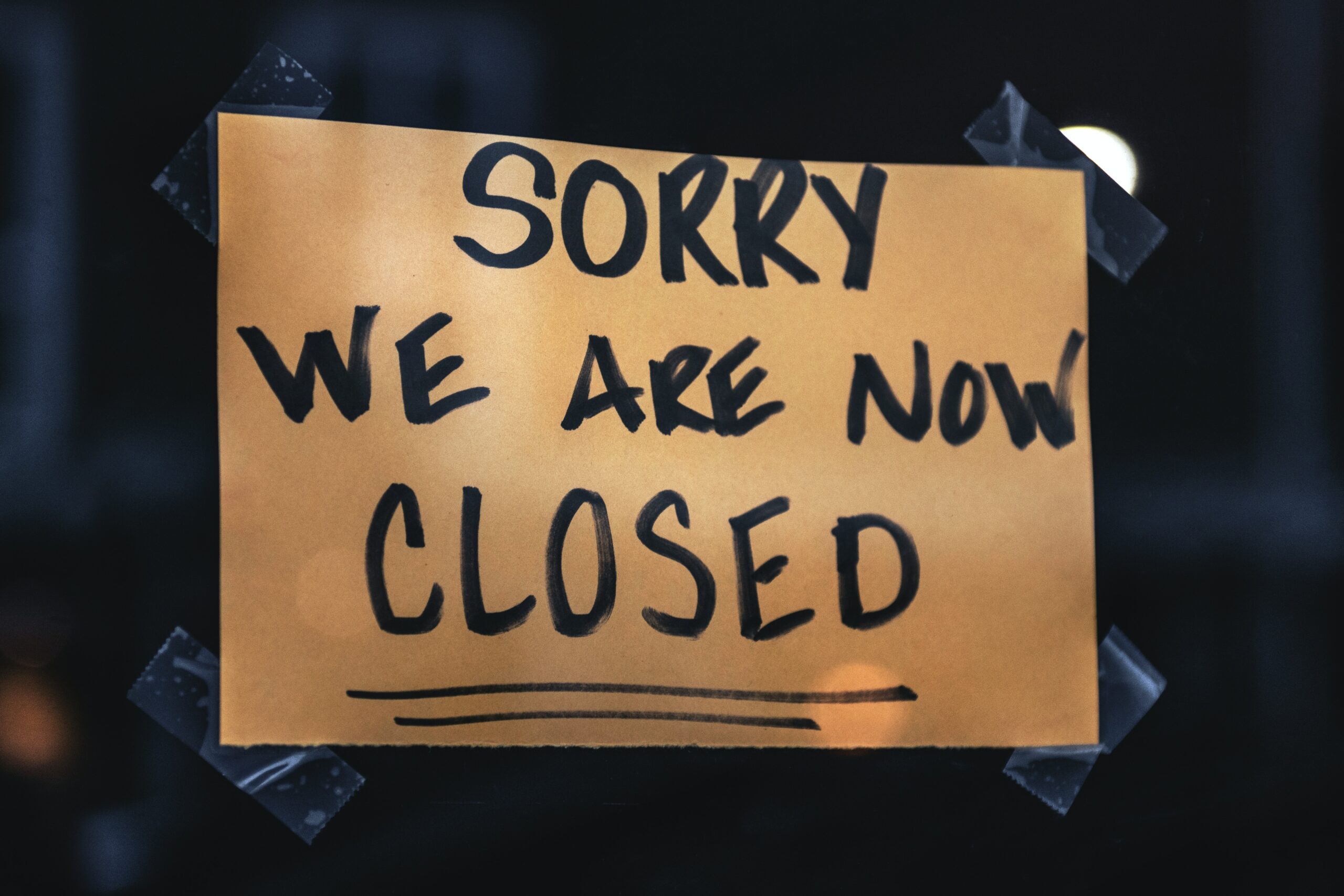Why have many businesses failed during this pandemic? One of the key reasons: No Risk Management!
The current pandemic is putting pressure on many businesses’ cash flow. In many cases, company liabilities have been deferred and may even go unpaid, forcing the company to go out of business.
For most business owners, their business is their livelihood, security, and investment for the FUTURE. To the owner and their family, the business is their BREAD and BUTTER. Apart from that, a good business also takes care of many families, whom the employees bet themselves to grow together with the company.
Business owners need to consider that their business’ ongoing cash flow is like oxygen to the body, which needs to be cared for at all times. Most of the time, one would have to agree that loans granted from the bank are a common practice in order to advance a business, but loans are normally fully or partially secured against your company’s assets either in properties, cash, or by other means as collateral, including personal guarantee from the company owner or director. A personal guarantee means that the assets of the guarantor are subject to the company’s liabilities when the business fails on repayment.
There are 5 questions for the business when the guarantor passed on along the expansion of the business.
- Would the bank(s) withdraw the business facilities?
- Would your employees still receive their salary as usual?
- Would your supplier(s) still continue to supply your business?
- Would your clients still pay on time?
- Would the business still be able to generate the main income for your family?
Don’t you agree that there are business cash flow and valuable family assets that should be safeguarded? However, this is often neglected.
Should a safety net or firewall be created to safeguard the company’s cash flow and the guarantor’s family assets? The most common misconception is to assume that those guarantees often assume that the creditors will NEVER have any cause to call on them in a manner that affects their personal assets.
However, a question arises: what can be done by any business owner in order to reduce Personal Guarantee Exposure?
Here is where the story begins:
Mr. Tan passed away after battling cancer for a year, and his wife Sally inherited one-third of his interest in an IT business under testacy (a will). Sally, now a single parent to 2 children, will need all the available funds to look after her children and send them to college, as Tan had wished.
Prior to Mr. Tan’s passing, his family lived in a beautiful house, with one-sided DIY Personal Insurance Planning, with just a simple will on Estate Planning. He also did not engage with a financial planner to review the safeguards for his family and business.
As he was only in the start-up stage of his business expansion, he obtained a loan from the bank by providing a personal guarantee over his house. Upon his demise, Sally discovered that he did not have sufficient Guarantor Insurance as he kept saying he was “too busy” to do so.
It is a common misconception by most guarantees that the creditor will NEVER have a reason to call on them in a manner that affects their personal assets. However, when this dilemma happened to Sally, the bank, as secured creditors, calls her on to request a new guarantor for the loan.
Although Mr. Tan has written it in his will, his estate will need to undergo the Probate Process before it can be distributed to his beneficiaries (his family members). The bank, as a secured creditor, gets the right to claim his estate, which he pledged as a personal guarantor for the company. On the other hand, the bank might also review the existing bank facilities as the guarantor has passed on, which could immediately affect the business cash flow for those who have been left behind, and still rely on the business for their living.
In start-up businesses, due to the lack of proper business risk management and business succession planning, many obstacles will be faced.
🟠 With the premature passing of Mr. Tan, other partners struggled to organize to pay Sally her company shares in cash
🟠 This gave Sally no choice but to sell the family house in a fire sale to prevent having to file for bankruptcy
🟠 This avoids the Guarantor Indemnity Plan, which ensures strong liquidity in the company and thus, releases the demised guarantor’s personal asset guarantee
🟠 to avoid the bank(s) from retrieving the loan granted as to safeguard the business cash flow, which will not jeopardize the operation of the company, and affect the business owner’s personal assets
Lesson takeaways:
For business owners, the Guarantor Indemnity Plan can assist you in paying off your business debt by paying off bank loans when one has passed away, eventually minimizing the potential cash flow problems. In-depth, when one is covered with the Guarantor Indemnity Plan :
- Personal insurance is automatically preserved as this plan eases one off from its business debt with PERSONAL ASSETS STAYING INTACT
- Strong liquidity in the company safeguards your company and ENSURES THE CONTINUITY OF YOUR BUSINESS for living partners
Every time I share others’ cases, these are their STORIES. I hope that you can take away some lessons from these stories, and don’t let similar things happen to you.




